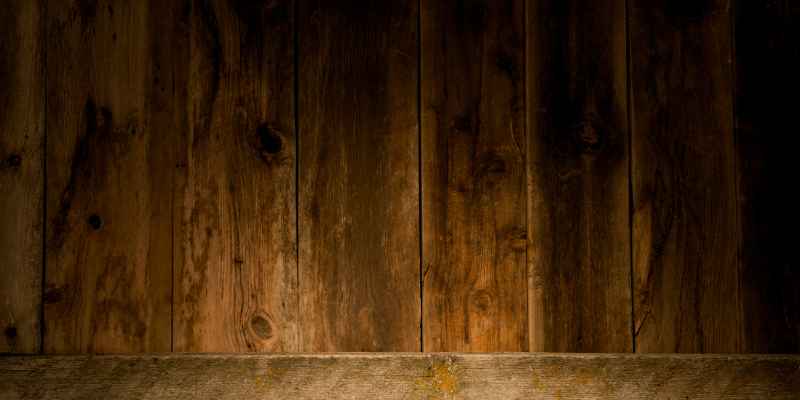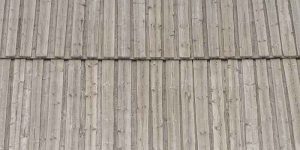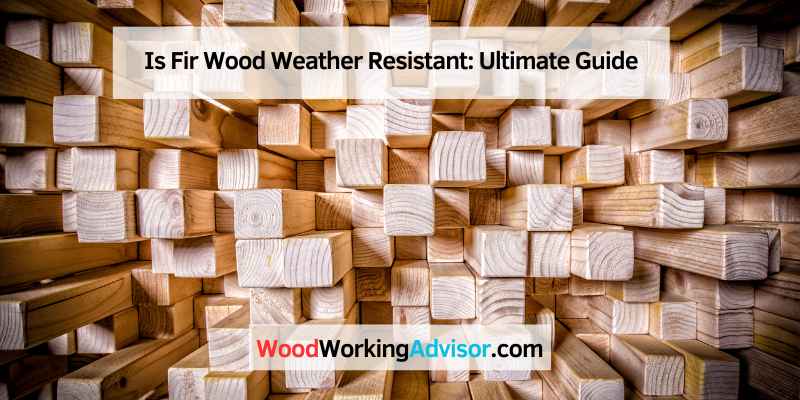Firwood is naturally weather resistant, making it a great option for outdoor projects such as decking, siding, and framing. Its durability and resistance to moisture damage and decay make it ideal for withstanding extreme weather conditions without quickly rotting.
Additionally, firwood is known for its strength and malleability, making it a suitable choice for those looking for quality results within short time constraints. With its ability to withstand the elements and its unique character, firwood is a reliable material for projects that require heavy structural durability.
Properties Of Fir Wood
Strength And Durability
Fir wood exhibits excellent strength and durability, making it ideal for outdoor construction projects.
Natural Resins For Protection
The presence of natural resins in fir wood provides inherent protection against moisture, decay, and fungal damage.
Malleability And Adaptability
With its malleable nature, fir wood can easily adapt to various construction requirements, ensuring flexibility in design and implementation.
Weather Resistance
Fir wood is known for its remarkable weather resistance, making it a popular choice for outdoor projects that require longevity and durability. In this section, we will delve deeper into three key aspects of its weather resistance: effectiveness in extreme weather conditions, response to moisture and humidity, and UV ray resistance.
Effectiveness In Extreme Weather Conditions
Fir wood exhibits exceptional performance in extreme weather conditions, which makes it suitable for outdoor applications such as decks, patios, and fences. It has the ability to withstand harsh elements, including intense heat, freezing temperatures, heavy rain, and strong winds, without quickly rotting or deteriorating. This remarkable weather resilience ensures that structures built with fir wood can maintain their structural integrity over time, providing a reliable and long-lasting solution for outdoor projects.
Response To Moisture And Humidity
Fir wood boasts a natural resistance to moisture, making it an ideal choice for regions with high humidity levels or frequent rainfall. Its cellular structure allows it to absorb and release moisture without significant warping, swelling, or shrinking. This moisture-resistant property reduces the risk of damage caused by water, ensuring that fir wood maintains its shape and strength even when exposed to humid environments or prolonged contact with moisture.
Uv Ray Resistance
Fir wood also demonstrates UV ray resistance, protecting it from the harmful effects of prolonged sun exposure. The natural resins present in fir wood act as a barrier, shielding it from the damaging ultraviolet rays that can cause fading, discoloration, and deterioration over time. This UV resistance preserves the appearance and integrity of the wood, allowing structures made from fir wood to retain their beauty and strength even under direct sunlight.
Outdoor Applications
Fir wood is a popular choice for outdoor applications due to its weather-resistant properties and durability.
Decking And Patios
- Fir wood is commonly used for decking and patios due to its strength and resistance to weather.
- Its natural resins protect against moisture damage and decay caused by fungi.
Fences And Siding
- Douglas fir is an excellent choice for fences and siding as it can withstand extreme weather conditions without quick rotting.
- The malleability of fir wood makes it suitable for quick installations without compromising quality.
Exterior Trim
- Fir wood is a durable option for exterior trim, offering resistance to weather and rot.
- Its robust nature and natural resistance make it a reliable choice for outdoor trim applications.

Treatment And Maintenance
When it comes to using Fir wood outdoors, proper treatment and maintenance are essential to ensure its longevity. In this section, we will delve into the importance of treating Fir wood for outdoor use, the difference between natural weathering and protective treatment, and provide some maintenance tips to keep your Fir wood looking its best.
Treating Fir Wood For Outdoor Use
To ensure that Fir wood is weather resistant, it is crucial to treat it appropriately for outdoor use. Treating Fir wood involves applying protective coatings that help seal the wood and prevent moisture penetration.
One common treatment method for Fir wood is the application of sealants or wood preservatives. These products provide an additional layer of protection against moisture, UV rays, and other environmental factors. They not only enhance the wood’s resistance to weathering but also help prevent rot, decay, and insect infestation.
Another popular treatment option is staining or painting the Fir wood. This not only adds aesthetic appeal but also provides a protective barrier against the elements. Stains and paints help seal the wood pores, preventing water absorption and minimizing the risk of warping, cracking, and splitting.
Natural Weathering Vs. Protective Treatment
While Fir wood can naturally withstand some weather exposure, opting for protective treatment is highly beneficial. Natural weathering occurs when the wood is left untreated, exposed to sun, rain, and other weather elements. Over time, the wood may fade in color, develop cracks, and become susceptible to decay.
On the other hand, protective treatment significantly extends the lifespan of Fir wood. It enhances its durability, resistance to weathering, and overall appearance. When treated with sealants, preservatives, or stains, Fir wood can better withstand the harsh outdoor conditions, including extreme temperatures, moisture, and UV rays.
Maintenance Tips For Longevity
To ensure your Fir wood remains weather resistant and aesthetically pleasing, regular maintenance is key. Here are some tips to help you maintain your outdoor Fir wood:
- Inspect the wood periodically for any signs of damage or wear.
- Clean the wood using a mild detergent and a soft brush to remove dirt, debris, and mold.
- Apply a fresh coat of protective sealant or stain every few years to maintain its weather resistance.
- Trim nearby trees or plants to prevent excessive moisture buildup and minimize shade that can promote mold and mildew growth.
- Avoid placing hot objects directly on the wood surface to prevent scorching.
- Keep the wood elevated and well-ventilated to minimize moisture retention.
By following these maintenance tips, you can ensure that your Fir wood remains resistant to weathering, extends its lifespan, and continues to enhance your outdoor space for years to come.
Comparative Analysis
When choosing wood for outdoor projects, one crucial factor to consider is its weather resistance. With various timber species available, a comparative analysis helps in making an informed decision. By examining the advantages and disadvantages of fir wood in comparison to other timber species, discerning its benefits over softwoods and hardwoods becomes essential.
Fir Wood Vs. Other Timber Species
In comparison to other timber species, fir wood exhibits exceptional weather resistance properties. Its robust nature makes it suitable for outdoor applications, with the ability to withstand extreme weather conditions without quickly rotting. Additionally, the natural resins present in fir wood protect it from moisture damage and decay caused by fungi and other microorganisms. This makes fir wood a popular choice for outdoor projects such as decking, siding, and framing.
Advantages Over Softwoods And Hardwoods
For outdoor projects demanding heavy structural durability, fir wood proves to be a go-to material. Its strength, durability, and natural resistance to weather and rot make it a preferred choice. Furthermore, its malleability enhances ease of use, making it a great option for those under short time constraints yet seeking quality results.
Expert Insights
Expert insights reveal that Fir wood, such as Douglas Fir, boasts natural resistance to weather and rotting. It is a popular choice for outdoor projects like decking and siding due to its durability and water-resistant properties. With proper care, Fir wood can last long even when exposed to the elements.
Opinions From DIY Communities
DIY enthusiasts often regard fir wood as a reliable choice for outdoor
projects due to its ability to withstand weather conditions without
quick deterioration. The community appreciates its robustness and natural
resistance to rot, making it suitable for various outdoor applications.
Professional Perspectives On Fir Wood
Professionals value fir wood for its strength, durability, and
weather-resistant properties. When used for outdoor purposes such as
decking and framing, fir wood’s natural resins provide protection from
moisture damage and decay. Its malleability also makes it a favorable
option for those operating under time constraints but unwilling to
compromise on quality results.

Frequently Asked Questions On Is Fir Wood Weather Resistant
How Long Does Fir Wood Last Outside?
Fir wood can last outside for a long time, thanks to its natural strength and resistance to weather and rot. It is a popular choice for outdoor projects such as decks, siding, and framing due to its durability. However, it is important to handle and transport the wood with care to avoid damage.
What Are The Disadvantages Of Fir Wood?
The main disadvantage of fir wood is that it is softer than hardwoods, which makes it more easily damaged. Care must be taken in milling, handling, and transporting the lumber.
Is Fir Wood Rot Resistant?
Yes, Douglas Fir wood is rot-resistant due to its natural resins that protect it from moisture damage and decay caused by fungi and microorganisms. It is well-known for its strength, durability, and water and rot-resistant properties, making it a popular choice for outdoor projects.
Does Fir Wood Weather Well?
Fir wood is weather-resistant and durable, making it a great option for outdoor projects. It doesn’t easily split, is naturally resistant to weather and rot, and has a unique grain pattern that adds character to any room.
Conclusion
Overall, Douglas fir wood is known for its excellent weather resistance properties. Its natural resins provide protection against moisture damage, decay, and rot caused by fungi and other microorganisms. This makes Douglas fir a reliable choice for outdoor projects such as decking, siding, and framing.
Additionally, its durability and malleability make it a great option for those seeking quality results within a short time frame. With its ability to withstand extreme weather conditions without quickly rotting, Douglas fir wood proves to be a reliable and durable choice for outdoor applications.


